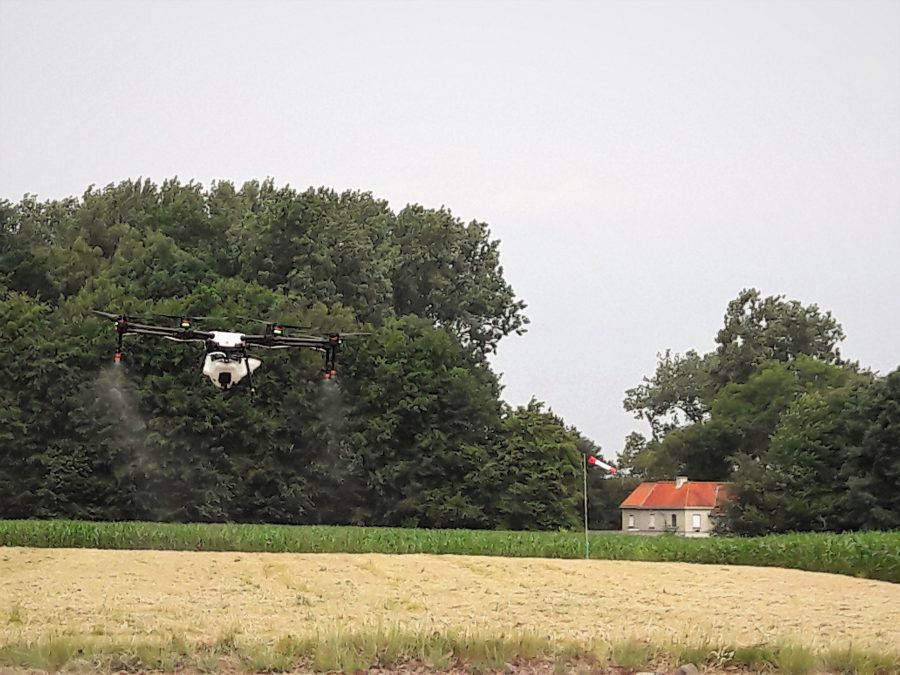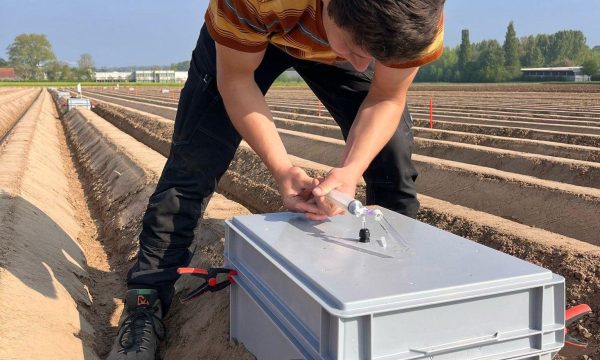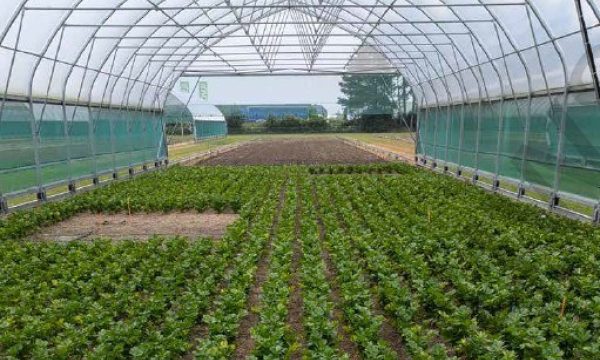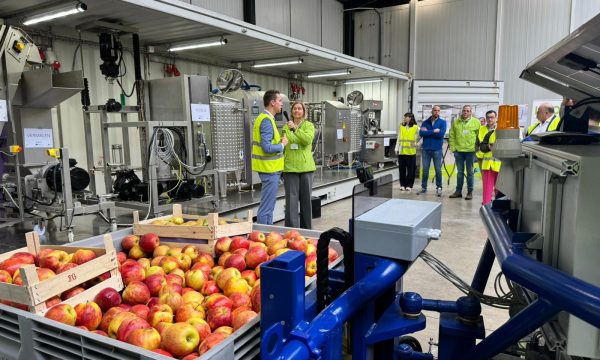Press release Smart crop protection in potato and fruit cultivation thanks to Flemish technology

Smart cameras on drones or tractors can detect plant diseases in agricultural crops. For instance, farmers will be able to detect and treat local disease outbreaks on their fields according to the principle of precision farming, leading to better crop protection. The new Industry 4.0 experimental farm 'Smart Farming 4.0', where for three years the Government of Flanders via VLAIO will organize, develop and demonstrate user-friendly and reliable applications for potato and fruit cultivation. Seven research centers, led by Flanders Research Institute for Agriculture, Fisheries and Food (ILVO), work together on the project.
The agricultural sector faces considerable challenges. Farmers are expected to produce more food in the future, but at the same time reduce their impact on the environment. According to the researchers, there is an important role for precision farming. With precision farming, each agricultural parcel is divided into smaller blocks, and each block is given exactly the right amount of pesticides or fertilizer. This is not only a win for the environment, but also the farmer, who benefits from a better yield at a lower cost.
Flemish technology
One domain where precision agriculture can offer a promising added value is disease control. To avoid heavy harvest losses, farmers are still often aiming to administer an even amount of the pesticide across the entire field. However, if the farmer knows where the infection hotspots are located – and where not- targeted intervention becomes possible. This technology already exists and it comes from Flanders. The IMEC Research Center has developed hyperspectral cameras mounted on either drones or tractors to detect beginning disease hotspots.
Focus on potatoes...
The Industry 4.0 experimental farm 'Smart Farming 4.0 ' will optimize and demonstrate two concrete applications to farms over the next three years. The first application is to detect Alternaria in potatoes. This fungal disease is on the rise and causes large production losses annually. The smart cameras need to distinguish between affected and unaffected plants in varying conditions, thus accurately mapping disease throughout the parcel. This digital infection card can then be used to steer intelligent sprayers for a targeted treatment.
... and fruit
The second application focuses on treating fire blight in fruit cultivation. This lethal bacterial disease for pear and apple trees is increasing every year in Flanders and creates substantial economic losses and risks to the export possibilities of the fruit sector. It is crucial to detect the infection as early as possible. Currently, this is still done on the basis of labor-intensive visual inspections. But thanks to automatic recognition from tractors, as developed in the experimental orchard, fruit growers can detect the disease faster and cheaper. Affected branches or entire trees can be quickly removed, thus limiting spread of the disease.
Partners
For the 'Smart Farming 4.0' experimental farm, seven research centers work together, each with their own range of expertise. In addition to ILVO and IMEC, pcfruit VZW, VITO, KU Leuven, Flanders Make and the innovation cluster for Smart Digital Farming all work together, supported by VLAIO.
About the Industry 4.0-Test Gardens
The experimental farm organized by the Flemish government via VLAIO is part of the Industry 4.0 transition program, part of the Vision 2050. Across Flanders, 17 Industry 4.0 experimental gardens have been active, where specialists make their expertise available to companies for three years through workshops, demos and events. These experimental fields cover a large number of themes (AR/VR, training, drones, 3D-printing,...) in various sectors (chemistry, construction, agriculture,...). Up to now, €8M has been dedicated for these experimental fields. For more info, please visit www.industrie40vlaanderen.be.


